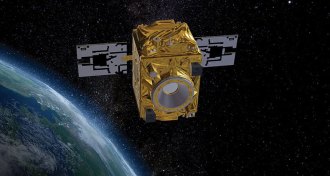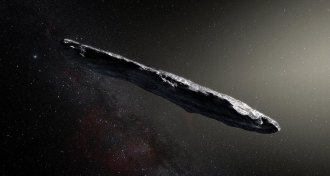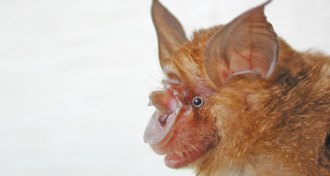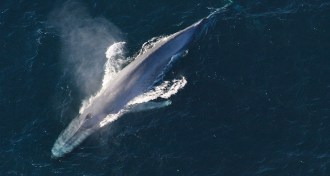News
-
 Health & Medicine
Health & MedicineWhat hospitals can do to help keep excess opioids out of communities
Guidelines for prescribing opioids following a routine surgery prevented thousands of unnecessary pills from leaving the hospital, a new study finds.
-
 Artificial Intelligence
Artificial IntelligenceNew setup for image recognition AI lets a program think on its feet
Researchers are revamping image recognition programs to better identify familiar objects in new situations.
-
 Physics
PhysicsIn a first, Galileo’s gravity experiment is re-created in space
A key principle of general relativity holds up in a new space-based test.
-
 Materials Science
Materials ScienceNew 3-D printed materials harness the power of bacteria
The three-dimensional materials contain live bacteria and could generate wound dressings or clean up pollutants.
-
 Astronomy
AstronomyWe still don’t know where the first interstellar asteroid came from
Astronomers are tracking stars to see if one of them launched the first interstellar asteroid at Earth.
-
 Physics
PhysicsCollision illuminates the mysterious makeup of neutron stars
Scientists size up neutron stars using gravitational waves and light.
-
 Animals
AnimalsScallops’ amazing eyes use millions of tiny, square crystals to see
Each of a scallop’s many eyes contains an intricate mirror made from millions of crystals.
-
 Genetics
GeneticsBats in China carry all the ingredients to make a new SARS virus
Viruses infecting bats could recombine to re-create SARS.
-
 Animals
AnimalsJackpot of fossilized pterosaur eggs unearthed in China
A treasure trove of pterosaur eggs and embryos gives tantalizing clues to the winged reptile’s early development.
-
 Anthropology
AnthropologyStrong-armed women helped power Europe’s ancient farming revolution
Intensive manual labor gave ancient farm women arms that female rowers today would envy.
By Bruce Bower -
 Health & Medicine
Health & MedicineTestosterone may be one reason why men don’t get asthma as much as women
Adult women have higher rates of asthma than men, and testosterone’s effect on the immune system may partly explain that difference.
-
 Animals
AnimalsMost blue whales are ‘righties,’ except for this one move
Though many blue whales tend to be “right-handed” when hunting for krill, one specific barrel roll move requires a lefty twist.